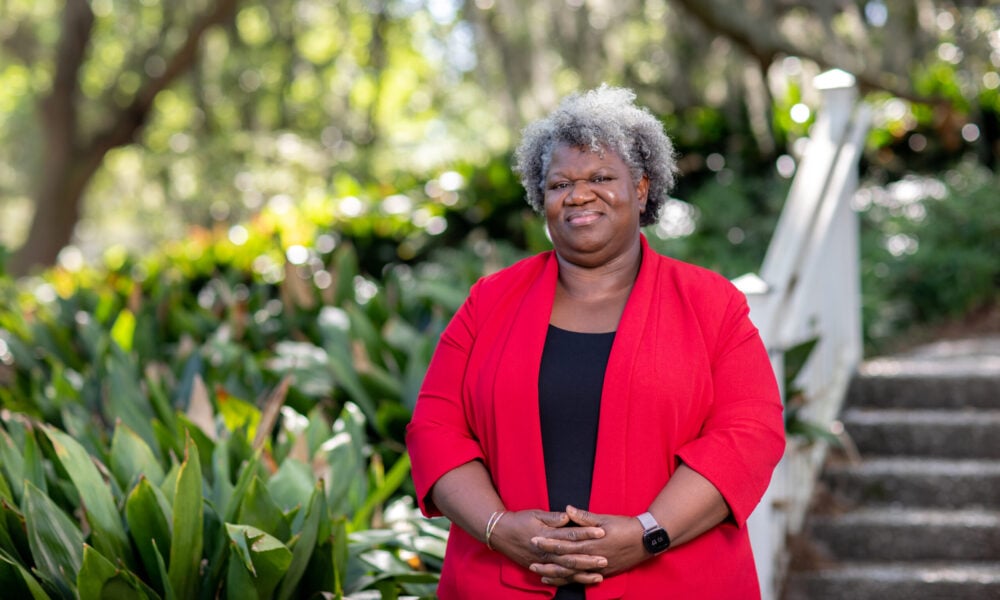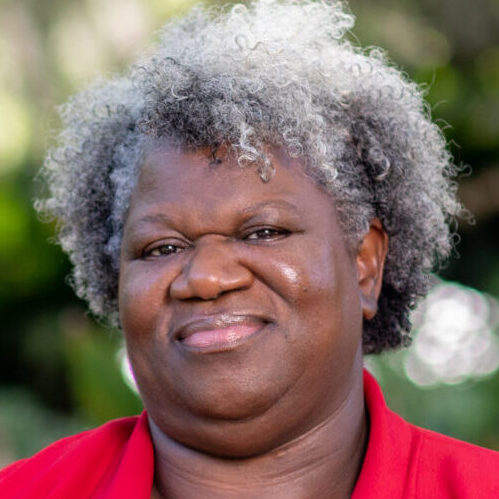My colleagues and I at the Center for Heirs’ Property Preservation (CHPP) had the pleasure of appearing in Gaining Ground: The Fight For Black Land, a documentary film executive produced by Al Roker Entertainment, produced and directed by Eternal Polk, and underwritten by Deere & Co., which highlights the causes, effects, and solutions for the loss of land among Black farmers and families. Heirs’ property—or land that has been passed down through generations without legal title—was noted as one of those causes and our work was provided as a solution (see the film’s trailer: “What is Heirs’ Property?”).
Although the documentary highlights the plight of Black heirs’ property owners, heirs’ property is not just an issue associated with Black folks who live in rural areas. The issue of heirs’ property can be seen as an equal opportunity employer. It is experienced by white folks in Appalachia, Native Americans across the country, Hispanics in the colonias of Texas, and Black folks living in the city of Philadelphia. Whether it’s called heirs’ property, fractionated land, heirs’ land, or tangled title, it all refers to land that is jointly owned by individuals with undivided interests. This makes the ownership, use, and maximization of this land difficult. In addition, this land is vulnerable to being dispossessed.
The consequences of heirs’ property
In situations where natural disasters such as hurricanes and tornadoes occur and impact the properties, these families have difficulty accessing FEMA funds or government assistance. For those owning forested lands, they have difficulty accessing cost-share programs from the US Department of Agriculture (USDA), which results in these folks not having the money to implement conservation practices that would help them generate more money from the sale of their timber when it is harvested. As carbon markets emerge as one potential approach to offsetting climate change, heirs’ property owners will be at a disadvantage in accessing those markets.
The limitations associated with heirs’ property not only relate to governmental cost-share and rehabilitation programs, but also landowners’ ability to participate in climate-based mitigation or restorative activities such as carbon sequestration programs, solar farming opportunities, and conservation easements due to unclear title. This exacerbates the vulnerability of the land, as it removes preferred, environmentally friendly land use options. In the alternative, the land remains increasingly vulnerable to tax sales and forced partition sales that often lead to land loss and commercial development (i.e., more concrete and less natural habitat).
As mentioned above, the carbon market, where forest landowners receive payments for sequestering carbon, is growing. Forests present one of the most cost-effective and scalable opportunities available today to sequester carbon because they naturally pull carbon dioxide out of the atmosphere and store it in their wood, leaves, and roots. The Center, in partnership with the American Forest Foundation, received a grant through the USDA Climate Smart Commodities program to support replicating its work with on-the-ground partners in Alabama, Kentucky, South Carolina, and West Virginia to ensure that underserved forest landowners who have heirs’ property issues can benefit from carbon payments.
Our work at the Center and beyond
The Center’s goal is to increase the number of historically underserved family landowners who: (1) receive legal education and legal services to prevent the creation and loss of heirs’ property and to promote the resolution of heirs’ property title issues, and (2) access resources and technical assistance needed to grow working landscapes. While the Center has done this work in South Carolina since our inception in 2005, we have always received calls from heirs’ property owners across the United States wondering if we were providing similar services in their state, only to be disheartened when they found out we did not.
In 2020, the Center’s board of directors and leadership team decided to help organizations in other states replicate various aspects of the Center’s delivery model for preventing the loss of land, resolving or fixing title issues on the land, and creating working landscapes using sustainable forestry. In 2021, we were happy to begin our partnership with Kimberly Clark, the World Wildlife Fund, and the Mississippi Center for Justice to create the Mobile Basin Heirs’ Property Support Initiative (MBHPSI).
MBPHSI began on the Mississippi “side” of the Mobile Basin. We are proud to announce that, after two years, we have expanded into the Alabama “side” of the Basin and have begun a partnership with Legal Services Alabama and International Paper.
Land left as heirs’ property results in families losing ground, sometimes literally. With the assistance of organizations like CHPP that is providing direct services to prevent the growth of heirs’ property and loss of land, fix or resolve title issues, and create small agricultural businesses, families can move forward and build wealth. In addition to direct services, advocacy, policy, and research are necessary to eradicate the issue of heirs’ property. For example, Senate Bill 436 was filed in South Carolina to create a commission that would address the legal and economic issues associated with heirs’ property in the state and their impact on families and economic development opportunities. The commission will be comprised of members from select nonprofit organizations, judges, and government officials.
What you can do
As you are reading this, you might be wondering, “How can I help these families?” Here are some actions you can take:
- Urge your congressperson to include legislation in the 2023 farm bill that would create a companion program to the Heirs Property Relending Program. This companion program would authorize grants and/or cooperative agreements to be awarded to 501(c)(3) organizations experienced in delivering legal services to underserved landowners, thereby eliminating the need for these already disadvantaged landowners to take out loans to resolve title issues and draft estate plans.
- Urge your family and neighbors to have a last will and testament drafted.
- Urge a clergy member to offer estate planning workshops to their parishioners.
- If your state has not enacted the Uniform Partition of Heirs’ Property Act, urge your elected state legislators to do so.
- Support the creation of the Center for Heirs’ Property Preservation’s National Heirs’ Property Alliance.
- Make a donation to nonprofit organizations, such as those listed below, who are working with historically underserved landowners.
Gaining ground means to advance or make progress. Some of its synonyms are to make up for lost time, pick up speed, press forward, proceed forward, progress, and push on. Please take this opportunity to join in the heirs’ property field and help these families make up for lost time, press forward, push on, and progress.
Some organizations working in the heirs’ property space
- Farm Land Access
- Federation of Southern Cooperatives
- Georgia Heirs Property Law Center
- Indian Land Tenure Foundation
- John Deere LEAP Coalition
- Sustainable Forestry Land Retention Network
Additional resources
- FHL Bank Atlanta
- HeirShares
- Wells Fargo Heirs Property Initiative

